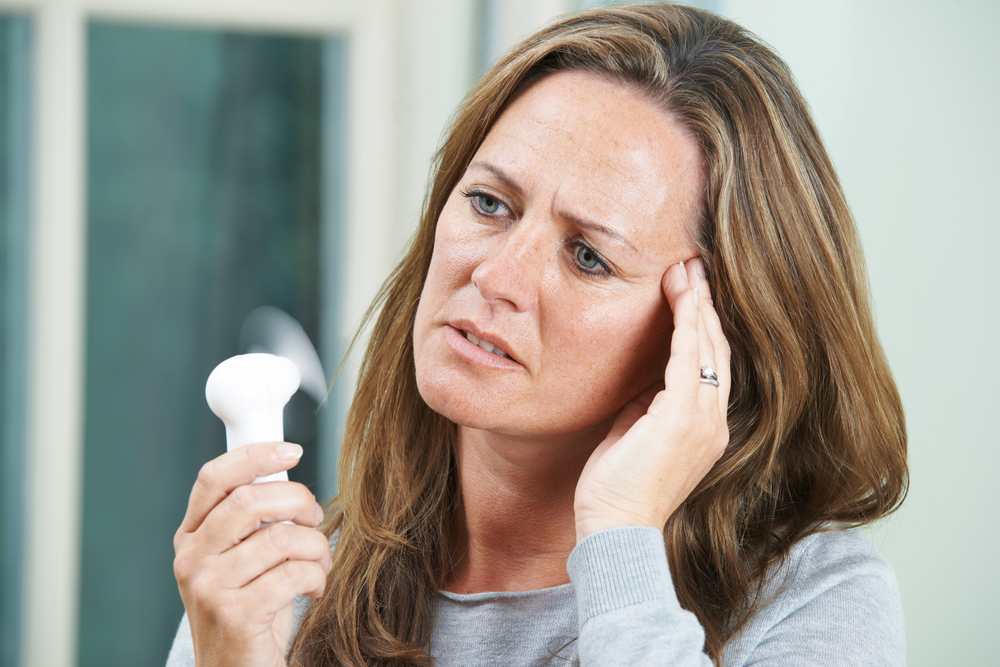Menopause and Skin Aging

Our skin changes a lot over our lives. When we’re infants, our skin is as soft as possible thanks to an abundance of moisture and our skin being at its best for repairing itself. As we age, the moisture content of the skin decreases as well as our skin’s abilities to maintain its structure. This decrease in collagen and elastin in the skin gradually leads to fine lines, wrinkles, and sagging of the skin. There are other things that change as we age though. Hormonal changes, in particular, tend to have potent effects on the skin. This is particularly true for pregnant women and women entering menopause. Each of these life events has a different impact on the skin. The effects of menopause tend to creep on women more and as a result, we’ve got a quick guide on what to look for when trying to keep skin healthy as they approach that part of their lives.
A Greater Impact
Shifting hormones during menopause can actually magnify the typical signs of aging. This is particularly true when it comes to collagen and the overall firmness of the skin. Estrogen plays a key role in maintaining both of these. A decrease in it necessarily impacts your skin’s appearance. Fine lines are far more likely to start forming and appear during menopause as a result. Most of these come from the skin’s lessened capacity to repair itself. It makes sense that there is an overall decrease in your skin’s ability to heal itself after damage during and after menopause. It makes it more important to be careful about hurting your skin and ensuring proper treatment of wounds. Proper care can help alleviate some of these effects, but it is important to note that the hormonal changes are permanent and most women will deal with these effects to one degree or another.
Less Noticeable Changes
Dry skin is actually an increasing problem for menopausal and postmenopausal women. This isn’t just related to the decrease in moisture in our skin as we age. Most of us account for the gradual decrease with moisturizers. Hormonal changes can actually lead to a shift in your skin type to dry skin. It isn’t common for a total shift to occur, but it does happen occasionally. Most women can expect, at worst, patches of dry skin to form that requires a bit more attention. You should remember that dry skin tends to be far more sensitive. This is particularly true with regards to menopause. Your skin is actually decreasing in thickness due to less estrogen. This loss is related to collagen and other structural proteins, but also means your skin becomes weaker overall. Your skin doesn’t just have more trouble healing itself, but is literally easier to harm.
Issues with Coverage
Decreasing estrogen levels can also cause less wanted changes. One of the ones people dread the most is that unwanted facial hair increases in during and after menopause. There is no way to really get around it either due to it being a symptom of testosterone getting slightly more influence over the skin. The increase is seldom terribly noticeable to others, but some women may find themselves plucking hairs in areas that they didn’t need to before to maintain their look. This can impact confidence in one’s appearance as one ages though. Similarly, scalp hair thins slightly due to the hormonal shifts as well. Treatments are available that can help with each of these problems. They are something to be aware of when considering skin changes surrounding menopause though.
Our skin is one of the largest organs of our body. It is necessarily affected by any large changes going on in our body and can even help identify the changes in some cases. Women should try to remember this whenever a major life event happens that impacts their hormone levels. Those keeping such knowledge in mind can begin to prepare their skin ahead of schedule and keep it as healthy as possible as their body goes through a difficult time.

